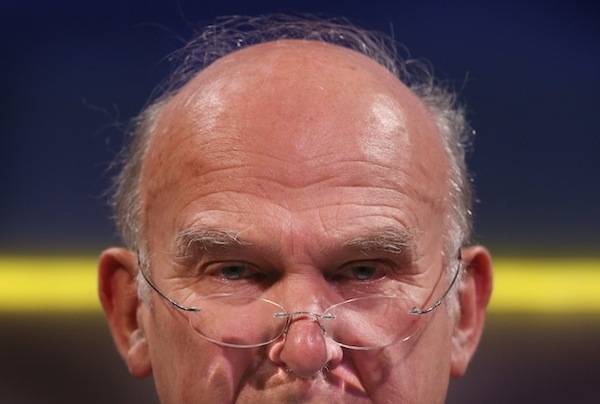If George Osborne and David Cameron did fire the starting gun for the 2015 election campaign over the weekend and yesterday, then what will that campaign look like? Labour wants to say it will be a nasty campaign because this means they can talk about heir favourite bogeyman Lynton Crosby and Ed Miliband’s own emphasis on personal decency. And privately Tories in the know accept that it is going to be a rough and dirty campaign on all sides.
But in the past two days we’ve also seen a glimpse of what it is going to be like between the two coalition parties, and frankly, it all looks rather exhausting. George Osborne pledges to cut welfare further. An hour later Nick Clegg describes it as unbalanced. This morning we’ve got Vince Cable muttering about the Tories’ net migration target. Although letting off steam about your differences is important, the two parties can’t sustain this intensity of disagreement for the next 17 months without making voters think that they’re both interested in the wrong things. And yet they have to learn to differentiate.
I set out the most dangerous scenario for differentiation in my Telegraph columnrecently: a mutually-assured destruction policy of leaking letters that reveal one party blocking the pet policy of another. Some figures are more vulnerable than others, and if the bickering stays at this level, we might see more letters working their way into the public domain than either side could have predicted. But oddly the model differentiation department at the moment is one where the two parties have the most fundamental of disagreements: justice. Chris Grayling frequently sets out where he would like to go on human rights reform in a Tory-only government while maintaining a very professional relationship with his Lib Dem counterparts. Other departments spend their lives bickering, especially the Tories in the education department, who are often frustrated by Clegg’s interventions, as well as the time it takes for him to agree to anything. While these rows might be more interesting for Westminster observers than the cordial disagreements in the Ministry of Justice, if both parties are to have any hope of convincing voters to pay them any attention, they might want a little bit more of the Grayling model and less of the public bickering.







Comments